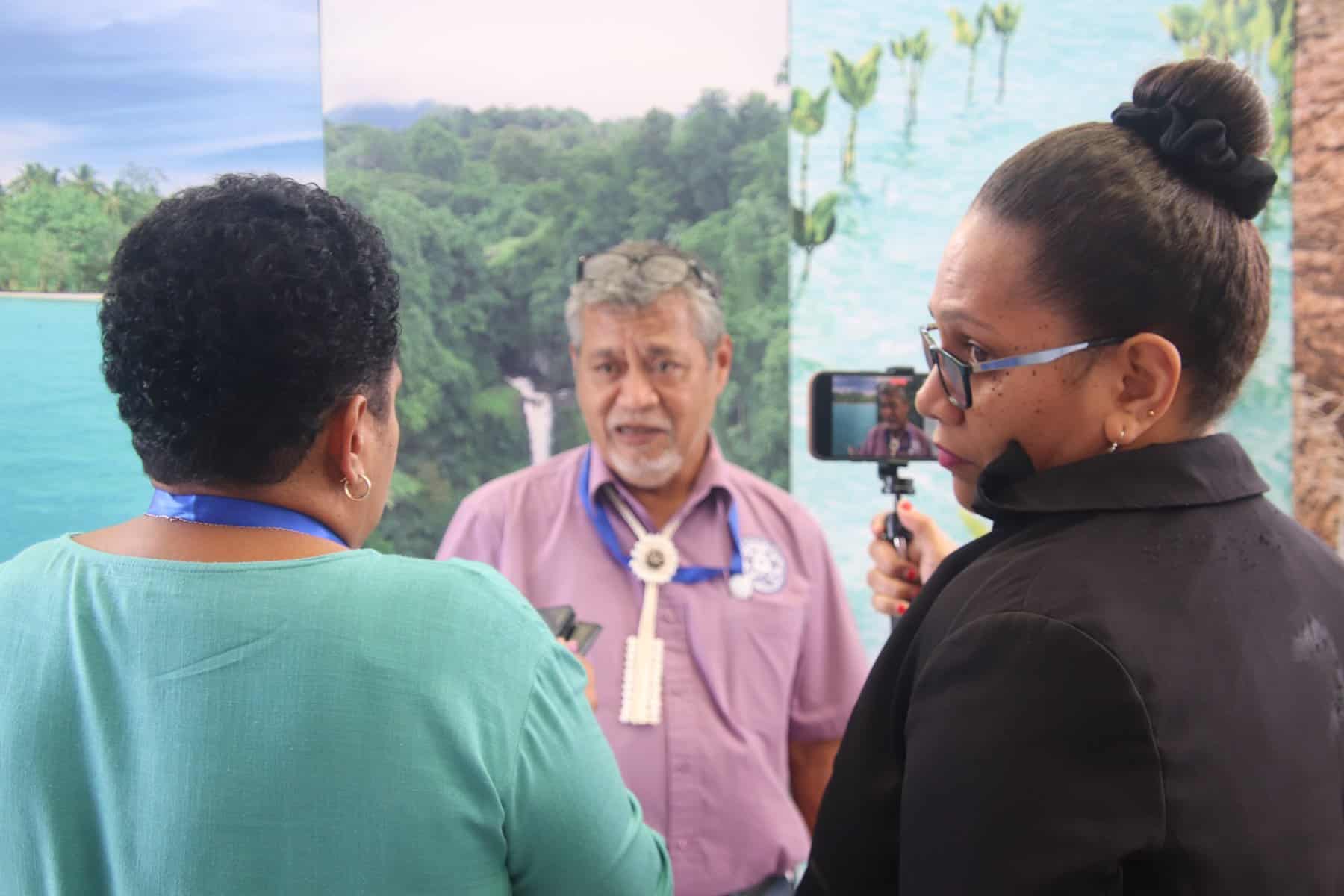The Republic of Marshall Islands national ocean policy is premised on working ‘smarter’ and not ‘harder.’
Glen Joseph, the Director of the Marshall Islands Marine Resource Authority (MIMRA) said his government has had to innovate and strategise on how to engage with donors and partners – given the increasing geostrategic and geopolitical interests in the ocean space in his country and the region.
“We have to think of how we can frame our asks from our donors and development partners so that we can maximise the benefits for our people.
“How do we co-ordinate to take advantage of the situation in the Pacific now – and better frame our ask. What is the best ask for the ocean to our development partners, asked Joseph?
He said the United States is stepping up in the region – and countries need to take advantage of this greater interest from global powers.
Last month, the U.S. signed a new economic partnership agreement with the Forum Fisheries Agency securing a funding of USD$60 million per year for the next ten years. The Economic Assistance Agreement promotes economic development in the Pacific region.
“I think at this time they are stepping up because they have been absent from the region for quite a while. I guess the geo-political play is that they need to step up and engage with us more – politically, diplomatically, technically and assisting us more financially.
“It’s how we frame our ask in a way that gets us what we want. Regionally we need to frame it in such a way that gives us what we want. If we want trillion dollars, we say trillion dollars, Joseph strongly advocated.
He echoed the sentiment of the UN Secretary General Special Envoy on Ocean, Ambassador Peter Thomson.
“We do not want millions or billions of dollars to flow to the Sustainable Blue Economy, we want trillions of dollars. Why? Because we need those dollars to secure the health of the Ocean, and thereby the planet, and thereby the well-being of our grandchildren. We need the trillions of dollars to decarbonise the global shipping fleet and the ports that service it, funding a transformation that has already begun, moving from powering our ships with the filth of bunker oil to pollution-free green hydrogen and other decarbonised propulsion systems.
We need the trillions, because if we invest now in offshore energy, in wind, tidal, wave and other Ocean technologies, we will have all the renewable energy we need, many times over, to power sustainable ways of life on this planet. We need the trillions of dollars invested to feed the future through sustainable aquaculture and farming the Ocean to produce new sustainable, nutritious forms of future food, seaweeds, phytoplanktons and other ethical, non-fed forms of aquaculture, said Thomson.
Joseph shared the success of the Parties to the Nauru Agreement (PNA) as a ‘fit for purpose’ regional arrangement for the benefit of its member countries.
“The Forum Fisheries Agency (FFA) and the Parties to the Nauru Agreement (PNA) are probably the most progressive organisation in the region – not to down play other organisation – but look at the status of the stock, they are in healthy condition and the benefits are flowing to the people.
“The value of our tuna in the Pacific is US$4-US$6 billion. In Marshall Islands alone, revenue from tuna has gone from US$3m in the early 90s to now US$50 million. The off-shore fishing combined with the coastal fishing which is even diverse – the snapper and bechedemer – that adds up to more than a trillion, said Joseph,
He acknowledged the presence of the UN Secretary General social envoy on Oceans at the regional oceans governance dialogue in Nadi this week.
“He knows what is required to be done globally and his interventions appears to be saying that we are not doing enough. He is saying we need to synergise and address oceans related issues and frame it in such a way that we are not just asking for millions or billions, we are asking for trillions, said Joseph. Fiji’s marine resources are among the most rich and diverse in the world and its marine tourism generated 1.15 billion in revenue in 2014. These are figures are contained in the new National Oceans Policy released by Izhaar Ali, the oceans expert at the Office of Climate Change in the Fiji Government.
